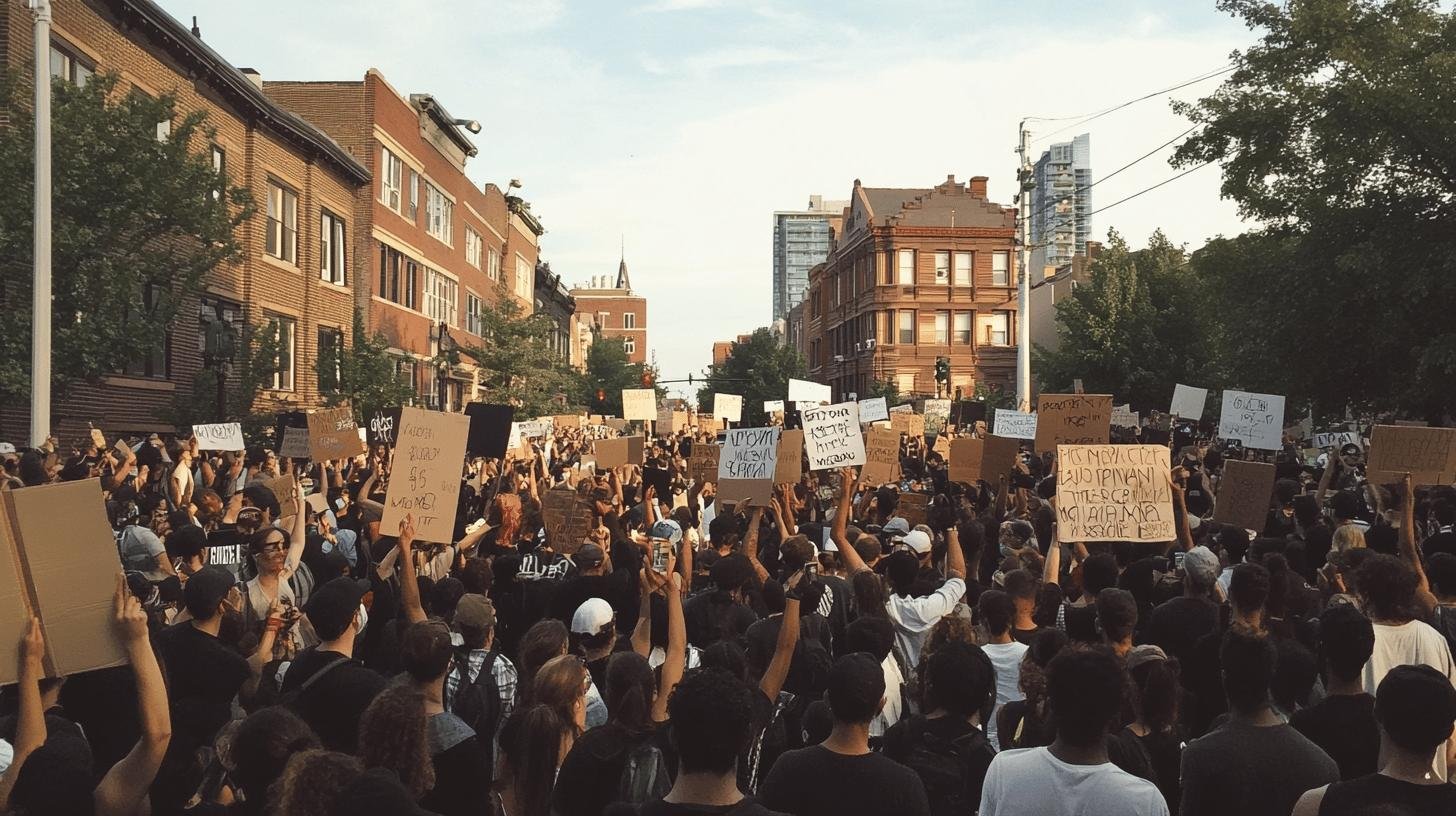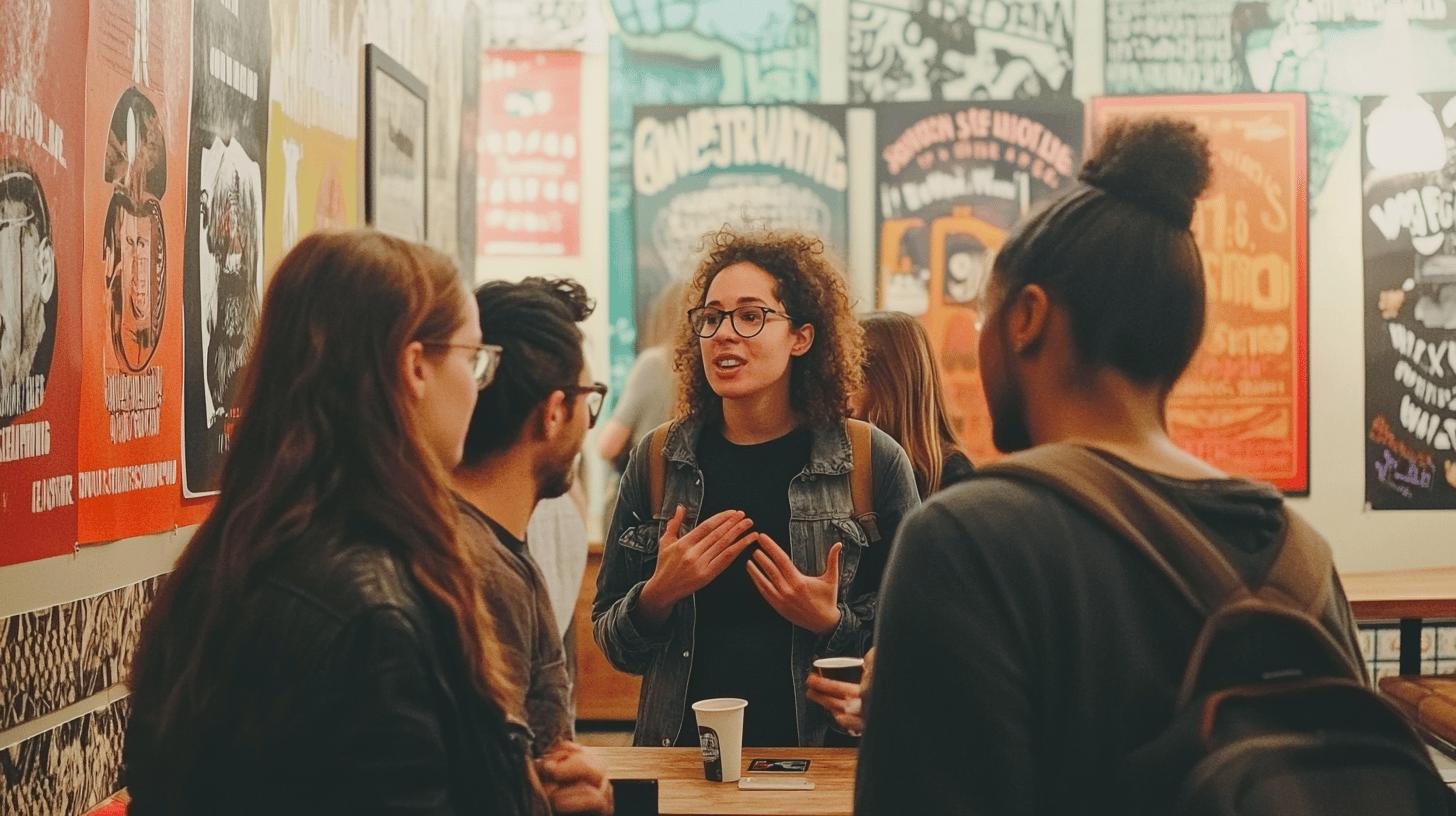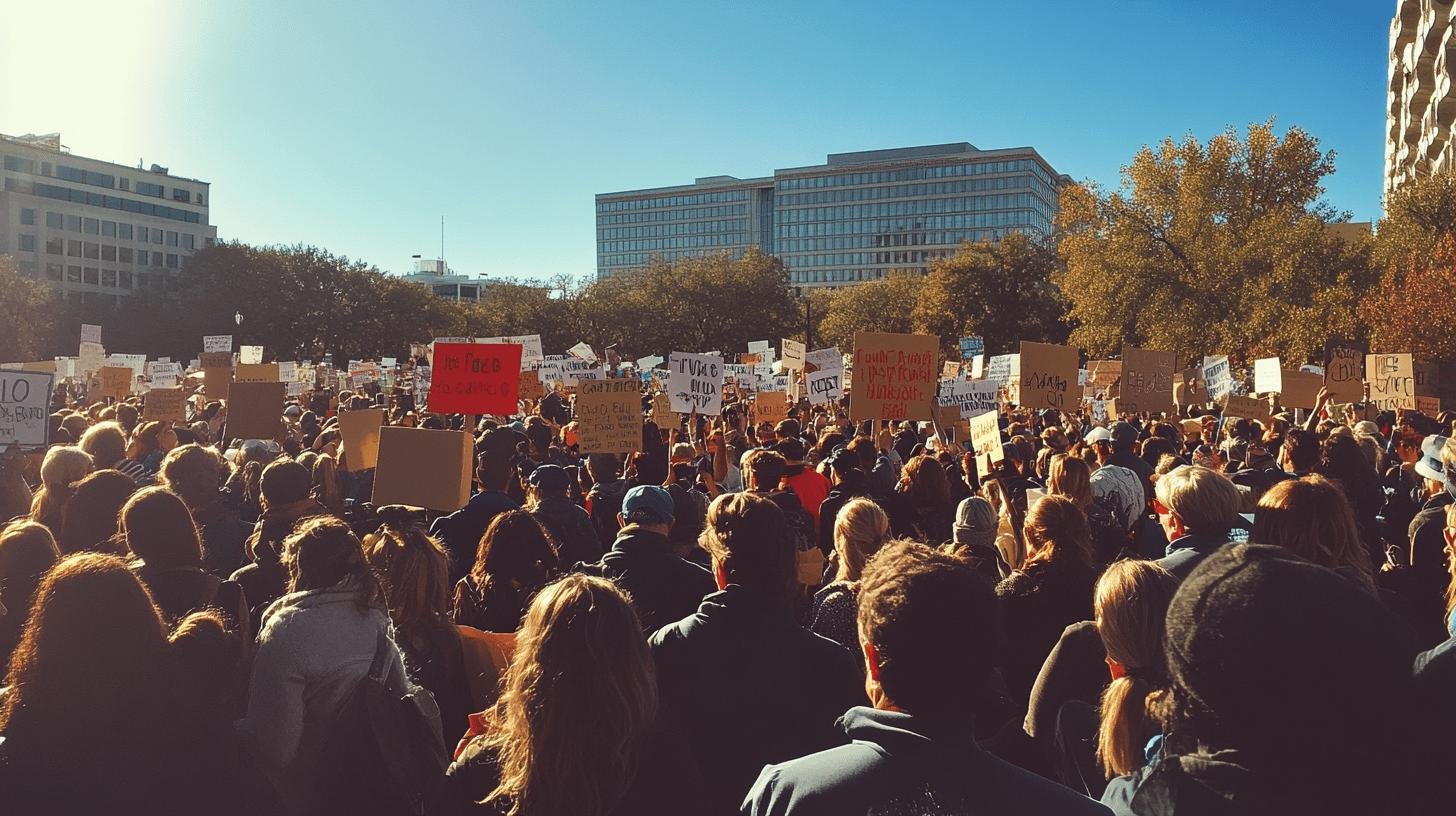TL;DR:
- Anti-woke politics oppose progressive social justice movements, advocating for traditional values.
- Key figures: Ron DeSantis, Josh Hawley, and Donald Trump.
- Focus areas: critical race theory, gender identity in education, and diversity programs.
- Emerged in response to social justice, stressing conservative norms.
- Notable events: 2010 (woke term usage), 2015 (rise of anti-woke politics), 2020 (legislative efforts against critical race theory).
- Anti-woke stance affects cultural debates and media representation.
- Future may involve adapting to societal changes while emphasizing traditional norms.
- Elections crucial, as they shape policies focusing on cultural issues.
Anti-woke politics has become a powerful force in American society, pushing back against what some see as too much focus on social justice. Led by figures like Ron DeSantis and other conservative leaders, this movement fights against things they view as threatening traditional values, like diversity programs in schools and workplaces. Anti-woke politics gained strength as more companies and schools started promoting social justice causes, leading to heated debates about America’s future. This article explores how this movement is changing our political conversations and what it means for our country’s direction.
Understanding Anti-Woke Politics in America
Anti-woke politics revolve around opposing progressive social justice movements. These movements aim to address discrimination and social inequalities. Supporters of anti-woke politics believe these initiatives cause cultural shifts that threaten traditional values. The discourse often includes challenging policies seen as promoting “woke” ideology.
Ron DeSantis is a key figure in this movement. As the Governor of Florida, he promotes policies resisting what he views as progressive overreach. He opposes critical race theory and educational content he sees as divisive. By focusing on cultural conservatism, DeSantis rallies support to maintain traditional American values.
Anti-woke politics significantly affect debates on diversity and inclusion. Advocates argue these movements maintain traditional social norms and challenge perceived radical changes. Critics suggest this stance may hinder equality and systemic issue resolution. These debates reflect a major divide in American politics over social and cultural policy directions.
Historical Context and Evolution of Anti-Woke Politics

“Woke” initially described awareness and activism for social justice, focusing on racial equality and discrimination. Progressive movements adopted this term to highlight efforts addressing systemic injustices and promoting inclusivity. Over time, “woke” became linked to initiatives reshaping societal norms for equity and representation of marginalized communities.
Anti-woke politics arose in response, stressing traditional values and resisting radical shifts. This counter-movement gained momentum through legislative initiatives and cultural narratives supporting conservative norms. Key actions include limiting critical race theory in education and challenging overreaching diversity and inclusion programs. These efforts reflect a broader shift to preserve established social structures.
Key Political Figures and Their Role in Anti-Woke Politics
Ron DeSantis, Florida’s Governor, is a top figure in anti-woke politics. He firmly opposes perceived progressive overreach, using his platform to support policies upholding traditional values. DeSantis strongly objects to critical race theory in education, saying it promotes division over unity. By emphasizing cultural conservatism, he rallies much of the conservative base to defend foundational American principles.
Other notable figures also drive anti-woke politics. Leaders like Senator Josh Hawley and former President Donald Trump critique woke initiatives. They stress preserving traditional norms and challenge policies they see as threatening freedoms and established cultural values. Their influence shapes the conversation, resisting perceived societal shifts.
Strategies and Policies
Anti-woke political figures use various strategies to advance their agenda. They target educational content, seeking to remove critical race theory from curriculums, believing it creates division. They also challenge diversity, equity, and inclusion programs, arguing they overemphasize group identity over individual merit. These actions resonate with those valuing conservative principles, fearing the erosion of traditional norms.
Cultural and Social Implications of Anti-Woke Politics

Anti-woke politics play a big role in shaping cultural conservatism by challenging progressive ideas on gender and race. They uphold traditional norms seen as threatened by radical changes. This influence is evident in educational debates on topics like critical race theory. By spotlighting historical values, anti-woke advocates aim to preserve foundational cultural principles. This often results in cultural clashes between progressive and conservative values.
- Educational curriculum and content
- Gender identity discussions
- Race-related dialogues and initiatives
- Media portrayal of social issues
The challenge to social norms by anti-woke politics extends into many societal areas, sparking intense talks. Proponents see maintaining these norms as key to societal stability. Critics, however, view this as hindering progress towards an inclusive society. The tension between preserving tradition and embracing change is a central debate.
Media representation is another field where anti-woke politics exert influence. The portrayal of race, gender, and social issues in media is scrutinized, with calls for content aligning with conservative values. This reflects concerns about media shaping public perception and widening ideological divides.
The Future of Anti-Woke Politics: Trends and Predictions
The future of anti-woke politics is debated, with questions on whether it will decline or evolve. Some believe it might wane as “woke” ideologies gain traction in mainstream culture. Growing openness to progressive ideas could reduce support for anti-woke stances. However, anti-woke politics may adapt, aligning with new societal norms while appealing to those valuing tradition. Is anti-woke politics expected to decline?
Elections are vital for anti-woke politics. Candidates supporting these views can reshape political landscapes, especially in conservative areas. As elections approach, both anti-woke and woke groups will compete for undecided voters. This struggle will likely impact future policies and strategies. Campaigns might increasingly focus on cultural issues, making anti-woke stances central to platforms.
Final Words
Anti-woke politics continues to shape American political debates, influencing everything from school policies to workplace rules. As our country grows more divided over social issues, understanding this movement becomes increasingly important. Whether you agree with it or not, anti-woke politics will likely remain a major force in shaping how Americans think about tradition, change, and what we teach our children.
FAQ
What are anti-woke politics and how do they affect society?
Anti-woke politics represent a movement that opposes progressive social justice initiatives, advocating instead for traditional values. This movement affects many aspects of society, from school curricula to workplace policies, and often leads to heated debates about cultural change.
What role do conservative leaders play in this movement?
Conservative politicians and public figures lead many anti-woke initiatives, creating laws and policies that push back against progressive changes in schools, businesses, and other institutions.
How does this movement affect schools?
The movement has led to new laws about what teachers can discuss in class, changes in textbooks, and restrictions on certain training programs focused on diversity and inclusion.
Why do some people support this approach?
Supporters believe it protects traditional values and prevents what they see as harmful ideological changes in society, especially in education and workplace culture.
What impact might this have on future generations?
This movement could significantly influence how young people learn about and understand social issues, potentially shaping their views on tradition, change, and social justice.

